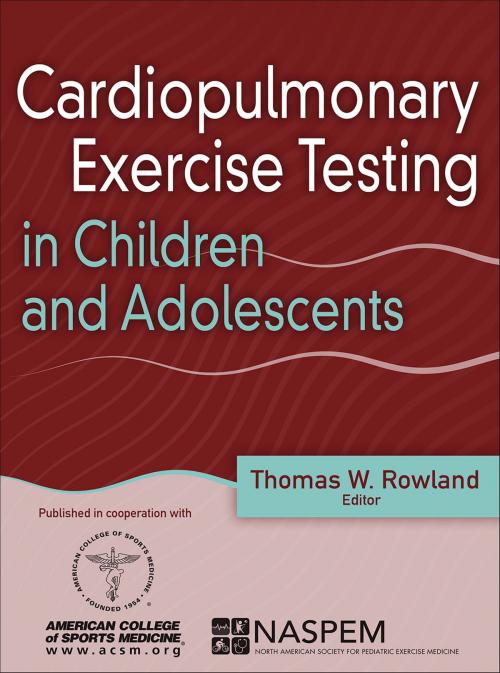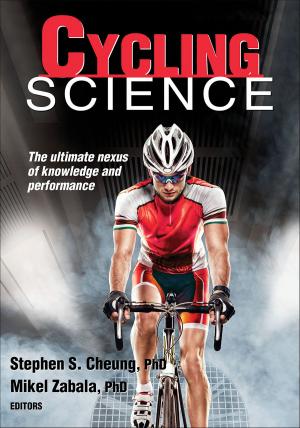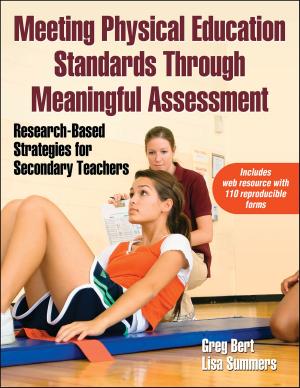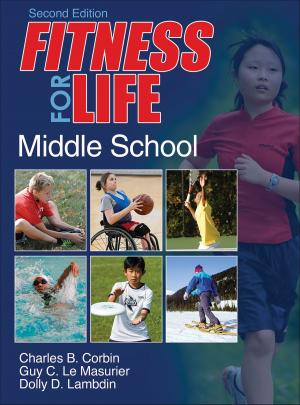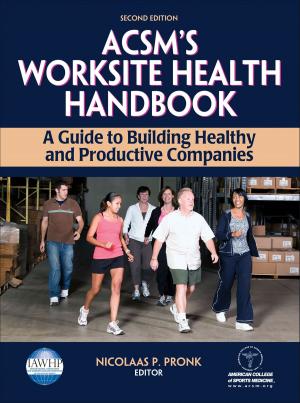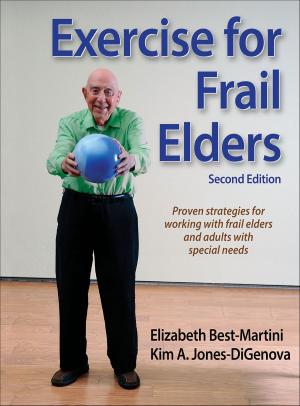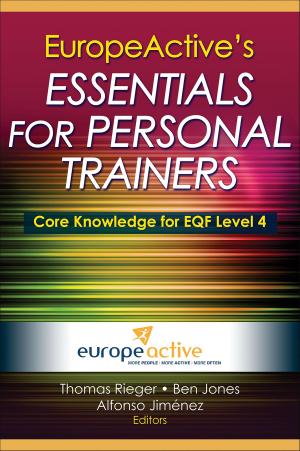Cardiopulmonary Exercise Testing in Children and Adolescents
Nonfiction, Health & Well Being, Medical, Medical Science, Physiology, Science & Nature, Science, Biological Sciences, Human Physiology| Author: | Thomas W. Rowland, American College of Sports Medicine, North American Society for Pediatric Exercise Medicine (NASPEM) | ISBN: | 9781492586524 |
| Publisher: | Human Kinetics, Inc. | Publication: | September 5, 2017 |
| Imprint: | Human Kinetics, Inc. | Language: | English |
| Author: | Thomas W. Rowland, American College of Sports Medicine, North American Society for Pediatric Exercise Medicine (NASPEM) |
| ISBN: | 9781492586524 |
| Publisher: | Human Kinetics, Inc. |
| Publication: | September 5, 2017 |
| Imprint: | Human Kinetics, Inc. |
| Language: | English |
Exercise testing plays an increasingly important role in the diagnosis and assessment of heart disease and lung disease in children and adolescents. In Cardiopulmonary Exercise Testing in Children and Adolescents, leading expert Thomas W. Rowland, backed by the American College of Sports Medicine (ACSM) and the North American Society for Pediatric Exercise Medicine (NASPEM), compiles the latest evidence-based research to provide guidance for clinical exercise physiologists, cardiologists, pulmonologists, and students of exercise physiology who conduct exercise stress testing for young patients.
The core objective of the book is to clarify the differences between clinical exercise testing for children and testing for adults. Because of obvious differences between the two populations, test protocols must be modified based on the patient's age, size, level of physical fitness, body composition, intellectual and emotional maturity, and state of cardiac and pulmonary health.
Part I provides an introduction to pediatric exercise testing. Part II examines exercise testing methodologies and discusses blood pressure, cardiac output, electrocardiography, oxygen uptake, and pulmonary function. Part III focuses on specific clinical issues addressed by exercise testing, guiding readers through protocols for diagnosis, evaluation, and exercise testing. Part IV explores testing in special populations and focuses on topics such as childhood obesity, neuromuscular disease, and intellectual disabilities.
Where applicable, sample forms and checklists provide practitioners with practical materials to use during exercise testing. Sidebars offer readers insight into considerations such as the presence of parents during testing and adjustments of cardiac measures for youth body dimensions.
This book serves as a means of focusing and unifying approaches to performing pediatric exercise testing in order to lay the foundation for new and innovative approaches to exercise testing in the health care of children and adolescents.
Exercise testing plays an increasingly important role in the diagnosis and assessment of heart disease and lung disease in children and adolescents. In Cardiopulmonary Exercise Testing in Children and Adolescents, leading expert Thomas W. Rowland, backed by the American College of Sports Medicine (ACSM) and the North American Society for Pediatric Exercise Medicine (NASPEM), compiles the latest evidence-based research to provide guidance for clinical exercise physiologists, cardiologists, pulmonologists, and students of exercise physiology who conduct exercise stress testing for young patients.
The core objective of the book is to clarify the differences between clinical exercise testing for children and testing for adults. Because of obvious differences between the two populations, test protocols must be modified based on the patient's age, size, level of physical fitness, body composition, intellectual and emotional maturity, and state of cardiac and pulmonary health.
Part I provides an introduction to pediatric exercise testing. Part II examines exercise testing methodologies and discusses blood pressure, cardiac output, electrocardiography, oxygen uptake, and pulmonary function. Part III focuses on specific clinical issues addressed by exercise testing, guiding readers through protocols for diagnosis, evaluation, and exercise testing. Part IV explores testing in special populations and focuses on topics such as childhood obesity, neuromuscular disease, and intellectual disabilities.
Where applicable, sample forms and checklists provide practitioners with practical materials to use during exercise testing. Sidebars offer readers insight into considerations such as the presence of parents during testing and adjustments of cardiac measures for youth body dimensions.
This book serves as a means of focusing and unifying approaches to performing pediatric exercise testing in order to lay the foundation for new and innovative approaches to exercise testing in the health care of children and adolescents.
